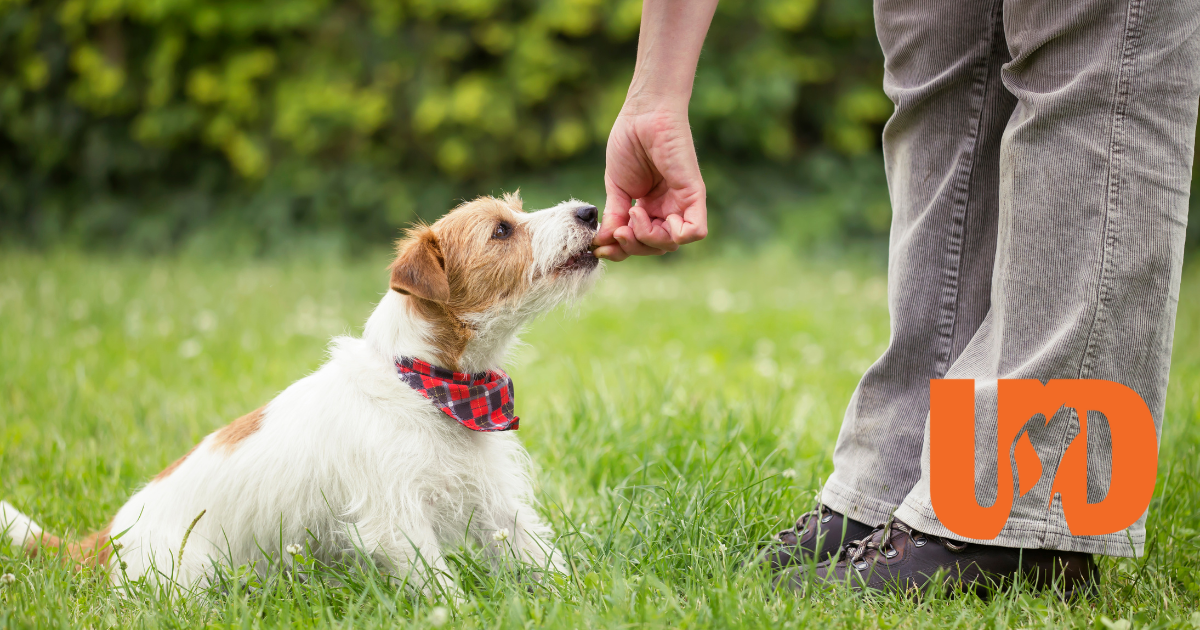The Power of Positive Reinforcement — And Its Hidden Pitfalls Positive reinforcement is one of…

How to Choose the Right Puppy Training for Your Puppy (and Your Lifestyle)
Bringing home a new puppy is joyful, chaotic, and full of questions—especially about training. Do you sign up for group puppy classes at a local facility? Hire a private trainer? Try virtual coaching? The options can be overwhelming.
Let’s walk through how to choose the best puppy training format for your puppy—and for you. Because great training isn’t just about convenience. It’s about setting your puppy up for success in your real world.
What Is the Best Age to Start Puppy Training?
The earlier, the better. Puppies are learning from the moment they arrive—about you, your home, the leash, the cat, and every sight, sound, and smell they encounter. The ideal time to begin structured puppy training is between 8 and 14 weeks, during the critical socialization period when they’re most open to new experiences.
But don’t worry—if your puppy is a little older, it’s not too late. With the right structure and timing, you can still build strong foundations.
What Are Group Puppy Classes?
Traditional group puppy classes are often held in training centers or pet stores. Puppies learn alongside others in a set curriculum, usually focused on basic obedience and socialization. These classes can be helpful for exposure to other dogs and people—but they’re not always the best fit for every puppy or every household.
Here’s why more and more dog owners are choosing something different.
Why Hybrid Private Puppy Training Is a Better Fit for Many Families
Hybrid training combines private in-home sessions with virtual coaching, offering flexibility without sacrificing quality. It’s highly personalized, goal-driven, and designed to work in your puppy’s natural environment—your home.
1. Real Learning Happens at Home
In group classes, puppies are often distracted, overstimulated, or too overwhelmed to learn. Hybrid training starts in the quiet, focused space of your home—where your puppy is calm and where most behavior issues actually happen. It makes learning easier and faster.
University of Dog Training Director Tecla Walton Discussing the Many Benefits of Virtual Puppy Training.
2. Personalized Support From Day One
Every puppy is different. Some are bold and bouncy, others timid and cautious. Hybrid training allows you to focus on your puppy’s pace, challenges, and personality—not a generic class agenda. It’s especially helpful for nervous pups who may shut down in noisy group environments.
3. Flexibility That Works With Real Life
Between work, kids, meals, and errands, it’s not always realistic to drive across town every Tuesday at 6 PM. Hybrid puppy training gives you the flexibility of virtual coaching sessions that you can attend from anywhere—and in-home visits scheduled when it works best for you. Additionally, because of the virtual component, it is more cost effective than a program of all in-home visits.
4. You Learn More, Too
Hybrid training isn’t just about your puppy—it’s about you. You’ll get one-on-one coaching on how to communicate, reinforce good behavior, and guide your puppy through tough moments. Virtual sessions often include follow-up notes, custom homework, and recordings you can rewatch anytime.
Here is a video from University of Dog’s Essentials for Puppies virtual curriculum. Imagine having a video like this that you can go back and watch as many times a you need to (instead of being in a group class, getting distracted by your puppy – or someone else’s puppy – and missing what your trainer is teaching you).
5. Less Risk of Illness and Overexposure
Until your puppy is fully vaccinated, group classes can carry a risk of exposure to contagious illnesses like parvo or kennel cough. Hybrid programs allow you to begin critical socialization and training safely, without waiting until week 16 or beyond.
And What About Socialization?
You don’t need a group class for that. In fact, some group classes can overstimulate or frighten young puppies if not carefully managed. Good hybrid programs include planned field trips, controlled introductions, and guidance on how to socialize your puppy the right way—with positive experiences, not chaos.
Here is a video of a puppy learning about play from a TRUSTED dog. Tecla will often utilize one of her trusted dogs to help a puppy learn important social skills and build confidence. This is more valuable than the group romp that occurs as a part of many group puppy classes.
Is Hybrid Training Right for You?
If you want to:
-
Start training early without waiting on vaccines
-
Focus on your puppy’s individual needs
-
Work at your own pace, on your own schedule
-
Learn in your home, where most issues happen
-
Get consistent support from a certified trainer
- Safeguard your puppy from exposure to potential illnesses before their immune system is ready to handle them
- Ensure your puppy’s socialization well-planned with controlled introductions and positive experiences
Then yes—hybrid puppy training is probably a perfect fit.
Final Thoughts
There’s no one-size-fits-all approach to raising a well-mannered, confident puppy. But choosing the right training format can make all the difference. Whether it’s leash skills, housebreaking, crate training, or biting and jumping, starting early in a structured, low-distraction environment builds lasting habits.
Hybrid in-home and virtual puppy training programs combine the best of both worlds: flexibility, personal attention, and real-world results.
Ready to help your puppy grow into the dog you’ve always wanted to live with? We’d love to show you how. Learn more about Puppy Training at University of Dog or Book a Free Discovery Call today!




